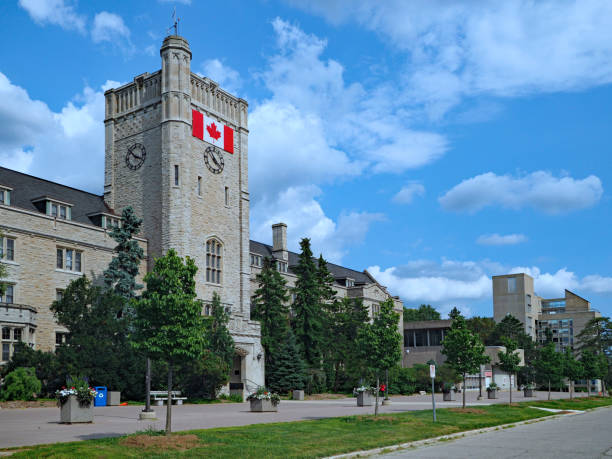If you’re dreaming of an education in Canada and a long-term foothold thereafter, knowing how Canadian scholarships can lead to permanent residency is a game-changer. Earning a scholarship isn’t just about covering tuition, it can elevate your profile, free up time for work or research, and feed into Canada’s immigration pathways. In this article, we’ll explore how scholarships tie into work permits, residency options, and long-term settlement in Canada, with real-world context and practical tips to make your plan stronger.
The Scholarship Advantage: More Than Just Money
When you win a scholarship in Canada, the obvious benefit is financial assistance. But beyond that, scholarships bring several indirect advantages that feed into settlement potential.
A good scholarship can relieve much of the tuition burden, allowing you to concentrate on studies, build strong results, and engage in campus life and extracurriculars. High academic standing and leadership often become part of your profile, valuable when you later apply for permanent residency. Being awarded a recognized scholarship also gives you credibility on your résumé. It signals to employers, immigration officers, and institutions that you stood out academically or in leadership. That distinction can help strengthen your immigration application.
With fewer financial constraints, you may have more time to take advantage of work opportunities, internships, or research assistantships. That work experience is crucial for immigration pathways that value Canadian work history.
How Canadian Scholarships Tie Into Immigration Pathways
Winning a scholarship is one thing, but turning it into residency is about aligning strategy with Canada’s immigration system.
After completing a program at a designated institution in Canada, international graduates often apply for a Post-Graduation Work Permit (PGWP), which allows them to work in Canada for up to three years. Scholarships support your ability to complete studies on time and fulfill PGWP eligibility requirements. Studies show that scholarships help strengthen profiles for PR by allowing full-time focus.
Work experience gained under a PGWP (especially in certain job categories) contributes to the Canadian Experience Class of Canada’s Express Entry system. Immigration authorities value Canadian-based education plus work—both of which scholarships help secure.
Many Canadian provinces have streams that favor international graduates with local credentials and work experience. A scholarship-backed education in Canada improves your competitiveness for those provincial nominations, which can add significant points toward permanent residency.
Beyond points and permits, your applicant profile matters. Scholarship winners often have leadership experience, research work, or academic distinction, all qualities immigration officers view favorably. Scholarship recognition therefore helps build a compelling immigration narrative.

Real-World Examples and Strategic Paths
Imagine an international student who wins a prestigious scholarship at a Canadian university. They complete a two-year master’s degree, secure a PGWP for three years, gain full-time employment in a skilled category, apply through Express Entry, and obtain permanent residency. The scholarship played a key role by reducing financial stress, enabling academic excellence, and building work experience.
Another scenario: an undergraduate scholarship enables a student to graduate debt-free, then they take on a job in their study province under PGWP, qualify for a PNP stream, and then transition to PR. Again, the scholarship improved academic performance, allowed early professional integration, and boosted their immigration profile.
Choosing a course that leads to in-demand employment, in a province with active graduate retention programs, enhances your long-term prospects. A scholarship enables you to pick wisely rather than being constrained by cost. Use the scholarship as leverage to choose location and field strategically.
Key Actions to Maximize the Scholarship-to-PR Path
Ensure your institution is an Immigration, Refugees and Citizenship Canada (IRCC)-recognized Designated Learning Institution (DLI) and that the program qualifies for a PGWP. No scholarship will bypass eligibility requirements.
Use the financial freedom from your scholarship to engage in internships, research, or campus leadership roles. These experiences strengthen your résumé and immigration eligibility.
Be diligent about tracking your work hours, employment category, and keeping paperwork in order. Your PGWP work leads to PR only if you meet the right criteria.
Plan so that your study program, work experience, and immigration application align perfectly. A scholarship helps, but timing remains key.
Don’t view the scholarship merely as short-term support. Let it be part of a journey: education, work, and then residency. Choose fields, regions, and institutions that align with Canadian labor needs and immigration programs.
The idea that Canadian scholarships can lead to permanent residency is not just a theory, it’s a proven path for many international students. A scholarship helps you study with fewer financial burdens, shine academically, gain Canadian credentials, obtain a work permit, build experience, and eventually transition to permanent residency. While it won’t guarantee PR on its own, when used wisely, it becomes a powerful springboard to building a successful life in Canada. If you plan your studies carefully, use your scholarship strategically, and keep your long-term goals in mind, you’ll position yourself strongly for success.







